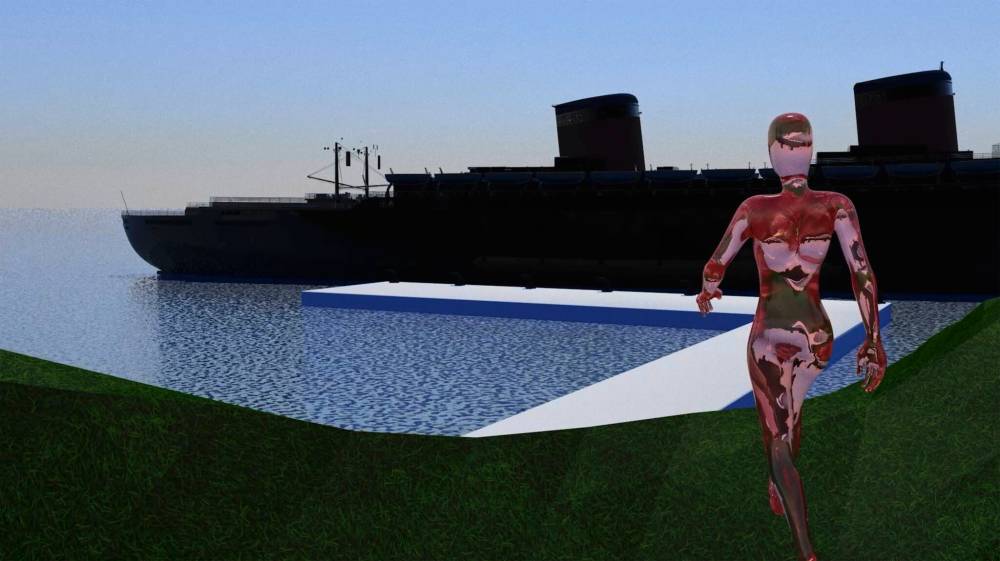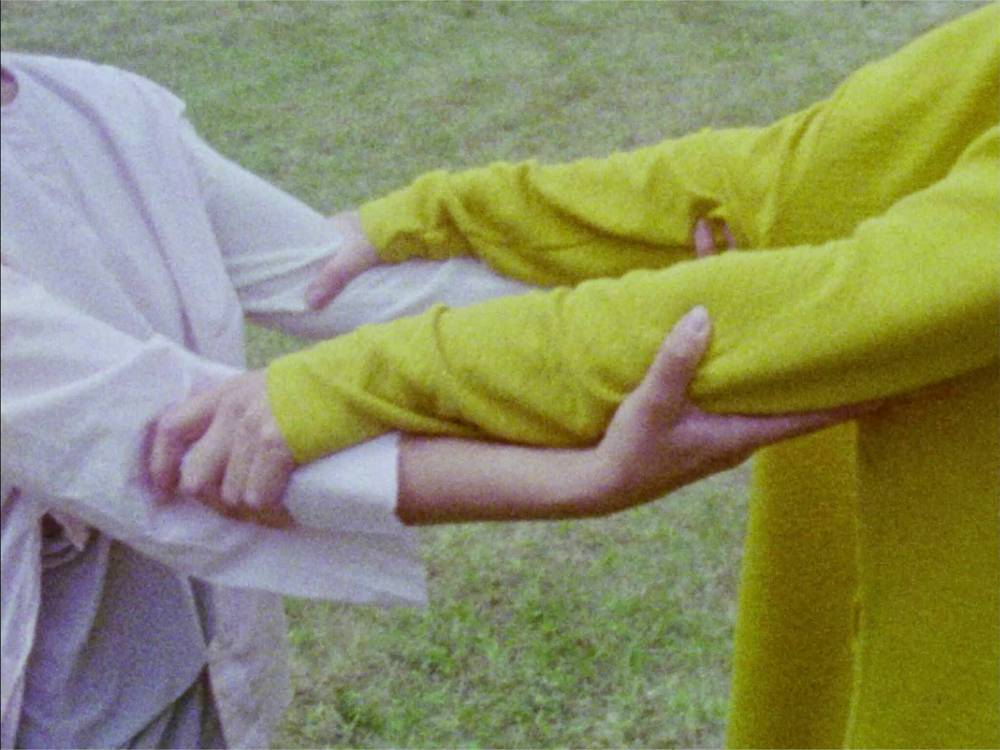No barriers to experimental cinema extravaganza
Advertisement
Read this article for free:
or
Already have an account? Log in here »
To continue reading, please subscribe:
Monthly Digital Subscription
$0 for the first 4 weeks*
- Enjoy unlimited reading on winnipegfreepress.com
- Read the E-Edition, our digital replica newspaper
- Access News Break, our award-winning app
- Play interactive puzzles
*No charge for 4 weeks then price increases to the regular rate of $19.95 plus GST every four weeks. Offer available to new and qualified returning subscribers only. Cancel any time.
Monthly Digital Subscription
$4.99/week*
- Enjoy unlimited reading on winnipegfreepress.com
- Read the E-Edition, our digital replica newspaper
- Access News Break, our award-winning app
- Play interactive puzzles
*Billed as $19.95 plus GST every four weeks. Cancel any time.
To continue reading, please subscribe:
Add Free Press access to your Brandon Sun subscription for only an additional
$1 for the first 4 weeks*
*Your next subscription payment will increase by $1.00 and you will be charged $16.99 plus GST for four weeks. After four weeks, your payment will increase to $23.99 plus GST every four weeks.
Read unlimited articles for free today:
or
Already have an account? Log in here »
Hey there, time traveller!
This article was published 29/05/2024 (591 days ago), so information in it may no longer be current.
Woof? Wuff? No matter which way you pronounce its acronymized moniker, the Winnipeg Underground Film Festival (WUFF) runs at the Dave Barber Cinematheque from Thursday to Sunday.
The festival, a project of a collective called Open City Cinema, is a sprawling showcase for contemporary experimental film and video, bringing strange, gritty, surprising and poetic pieces of media to the big screen that otherwise might never be seen by an audience.
If you haven’t heard of it, festival co-directors Madeline Bogoch and Scott Fitzpatrick invite you to get acquainted, and to resist being frightened by the underground label.

SUPPLIED
Anhell69 closes the festival Sunday.
“The baggage of the word ‘underground’ comes up a lot when we talk to people about the festival, and one of the ways that we describe it is that it’s more like an ethos than a genre,” says Bogoch, the distribution co-ordinator at Video Pool Media Arts Centre.
“There are a lot of festivals that use the ‘underground’ tag, and there’s a spectrum,” adds Fitzpatrick, a filmmaker who co-founded the festival in 2013.
“We’re kind of over here on the experimental end.”
Though it’s now found a home above street level at Cinematheque, the festival can rightfully claim its literal underground roots, with some of the earliest Open City screenings taking place on McDermot Avenue in the now-closed RAW:Gallery, which Fitzpatrick fondly remembers as a “grungy, grungy basement.”
The various locations of the festival — at the Frame Arts Warehouse on Ross Avenue, or the Rachel Browne Theatre — gave WUFF a nomadic feel, but all along, the annual event has had a clear idea of its goals, no matter where it hung its shingle, Fitzpatrick says.
“I think from the start we came out swinging with a pretty strong sense of identity and esthetic,” he says.
That identity is driven by an open call, meaning anybody can submit their work without having to pay a submission fee. The removal of that cost barrier means the festival regularly receives in excess of 1,000 submissions per year.

SUPPLIED
Gala Hernández López’s The Mechanics of fluids is one of 98 films in the festival.
This year, a committee of five watched each of the 1,132 submissions, whose runtimes range from a few seconds to feature length, before the group curates the festival program. Of those submissions, 98 films were selected.
“There’s always more stuff we want to program, and sometimes we can’t find a good place to put them, but the seeds get planted, and the next year or several years down the line, we will circle back to a filmmaker and we see a practice evolve, giving us context, and we will end up working with them,” says Bogoch, who has a master’s degree in art history.
That happened this year when Bogoch and Fitzpatrick revisited a previously rejected film.
“WUFF 8 was entirely online, so we had significantly reduced programming, but there was a film by a filmmaker named Malic Amalya that I absolutely loved, but it didn’t fit with the program we ended up moving forward with,” says Bogoch.
On Friday at 10 p.m., the Bay Area-based Amalya’s film Towards the Death of Cinema will be screening in a special WUFF program at the Sudanese Canadian Community Centre (129 Dagmar St.), accompanied by a live synthesizer score with alternative projection techniques by Amalia and Nathan Hill, who perform together as Vitreous Chamber.
A highlight of the festival each year is The 90 Second, a rapid-fire showcase of films that don’t exceed the titular timeframe. The WUFF program describes the event — taking place Friday at 7 p.m. — as a “chaotic gauntlet of 49 films.”
Some local artists included in that program include Farrah Murdock (In-Between); Kacper Stein, Zoë LeBrun & Kitty Kerr (Space no Space); Freya Björg Olafson (Working With Choreographic Expectations); and Robert Fordyce (Useless Metaphors and Very Nice Socks).

SUPPLIED
Gernot Wieland’s Turtleneck Phantasies was released in 2022.
The festival closes Sunday with an 8:30 p.m. screening of ANHELL69, a self-described trans film by Colombian director Theo Montoya. The film showed in Winnipeg last fall as part of the Gimme Some Truth Festival, curated by the late Cinematheque programmer Jaimz Asmundson.
Festival passes — which include all films and events — are $25 at winnipeguff.com.
Call it woof or call it WUFF, that’s a deal worth barking about.
ben.waldman@winnipegfreepress.com

Ben Waldman is a National Newspaper Award-nominated reporter on the Arts & Life desk at the Free Press. Born and raised in Winnipeg, Ben completed three internships with the Free Press while earning his degree at Ryerson University’s (now Toronto Metropolitan University’s) School of Journalism before joining the newsroom full-time in 2019. Read more about Ben.
Every piece of reporting Ben produces is reviewed by an editing team before it is posted online or published in print — part of the Free Press‘s tradition, since 1872, of producing reliable independent journalism. Read more about Free Press’s history and mandate, and learn how our newsroom operates.
Our newsroom depends on a growing audience of readers to power our journalism. If you are not a paid reader, please consider becoming a subscriber.
Our newsroom depends on its audience of readers to power our journalism. Thank you for your support.

